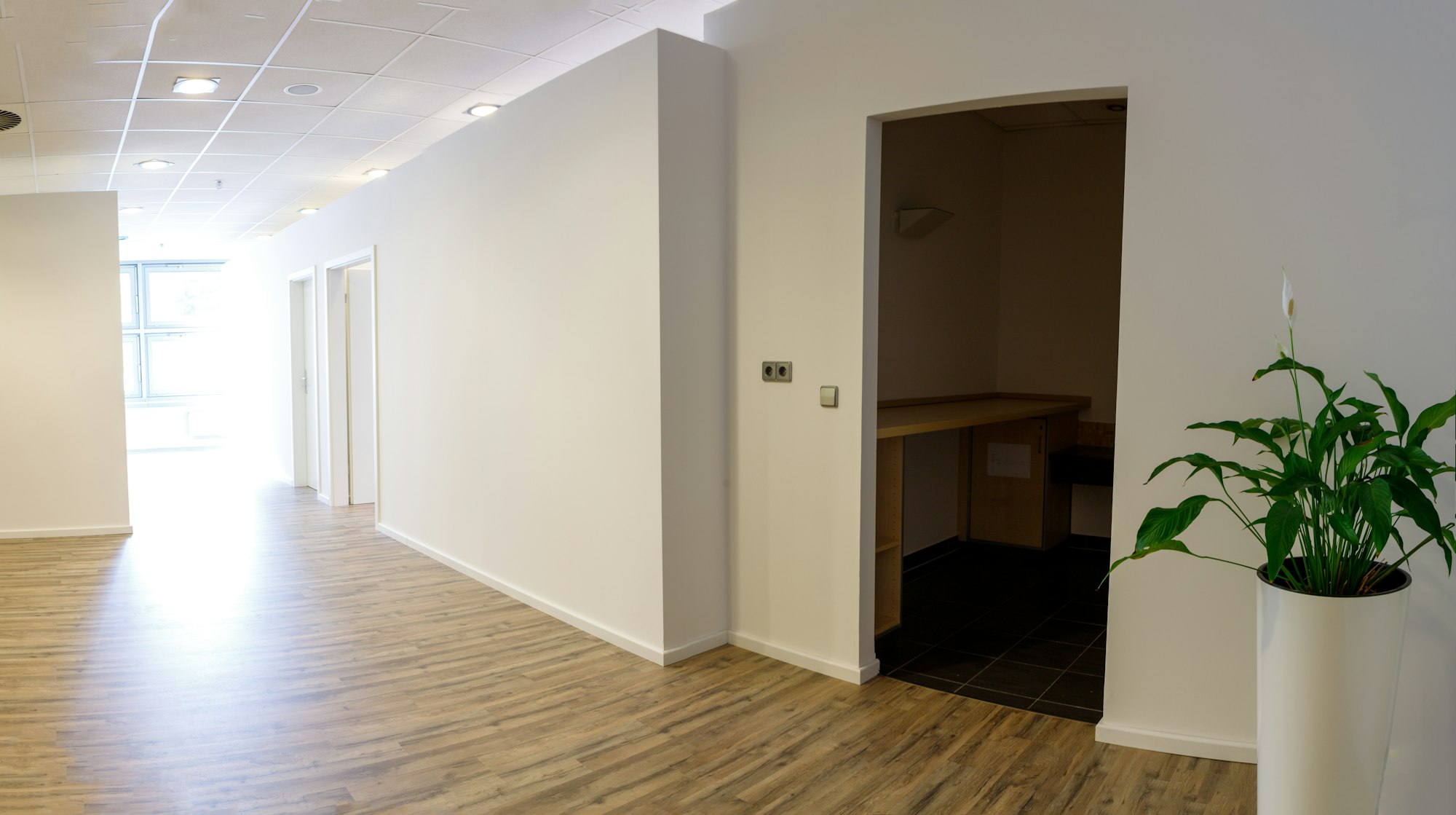Can a Nursing Home Prevent You From Leaving a Skilled Facility?
Curious if a nursing home can legally keep you or a loved one from leaving? Discover your rights and the rules that facilities must follow regarding patient discharge and transfer. Empower yourself with the knowledge you need to make informed decisions.

This post will provide helpful information on when and how to leave a skilled nursing facility, including an overview of the criteria for leaving, discharge rights, and cost considerations. We hope that this guide will provide answers to your questions, so you feel confident about leaving a skilled nursing facility. Let's get started!
What Is a Skilled Nursing Facility?
A skilled nursing facility (SNF) is a long-term care option where medical professionals provide 24-hour care and supervision to individuals who are unable to receive care in a traditional home setting. Skilled nursing facilities are primarily for those who need ongoing medical care and support due to physical or mental disabilities, illness or age-related issues. Nursing home facilities play a crucial role in providing specialized medical care for seniors who can no longer live independently.
At a SNF, registered nurses, nurse practitioners, social workers, physicians and other healthcare professionals manage each patient’s medical needs, ensuring they receive appropriate care that meets their specific needs. SNFs also offer rehabilitation services such as physical, occupational and speech therapy, so that individuals can regain independence and improve their quality of life.
Individuals who choose to stay in an SNF typically require round-the-clock assistance with daily tasks, such as dressing, bathing, meal preparation, and assistance with medications. In addition, many SNFs provide social activities, spiritual programs and recreational activities to help individuals maintain good physical and emotional health.
Meeting the Criteria to Enter a Skilled Nursing Facility for Nursing Home Residents
When it comes to skilled nursing facilities, admission criteria is determined by healthcare providers. There are certain requirements that must be met to be admitted into a skilled nursing facility and an assessment must be completed in order to understand how well someone meets these criteria.
The assessment process is designed to evaluate whether a person is eligible for admission into a skilled nursing facility. It normally takes into account physical and mental health and includes an evaluation of any potential risk factors. It may also include an assessment of the patient's ability to perform daily living activities.
It is important to note that the assessment process may vary from one skilled nursing facility to another so it is important to understand the criteria for each facility before attempting to gain admission.
Understanding Your Rights as a Nursing Home Resident
As a nursing home resident, you have certain rights that are protected by law. These rights are designed to ensure that you receive the care and respect you deserve, and that you are able to make informed decisions about your care.
Dignity and Respect
You have the right to be treated with dignity and respect by nursing home staff and other residents. This includes the right to:
- Be treated with kindness and compassion
- Have your personal space respected
- Make choices about your care and treatment
- Have your cultural and personal preferences respected
These rights are fundamental to ensuring that your experience in a nursing home is positive and that you feel valued and respected.

Appropriate Medical Care
You have the right to receive appropriate medical care, including:
- Access to medical care that is tailored to your individual needs
- Information about your medical condition and treatment options
- The right to make decisions about your medical care and treatment
- The right to refuse medical treatment if you choose to do so
Ensuring you receive the right medical care is crucial for your health and well-being. Always feel empowered to ask questions and make informed decisions about your treatment.
Information and Communication
You have the right to receive information about the services offered by the nursing home, including:
- Information about the fees charged by the nursing home
- Information about your rights as a resident
- The right to ask questions about your bills and have those questions answered
- The right to communicate with others in person or in private
Having access to clear and comprehensive information helps you make better decisions about your care and ensures transparency in the services you receive.
Privacy and Independence
Nursing home residents have the right to privacy and independence, which are crucial for their physical and emotional well-being. This right encompasses several aspects, including:
- Respect for Personal Space: Residents should have their personal space respected, whether in private rooms or shared spaces.
- Autonomy in Care Decisions: They should be able to make choices about their care and treatment, reflecting their personal preferences and cultural values.
- Financial and Medication Management: Residents should have the ability to manage their finances, medications, and other personal needs independently, as much as possible.
- Freedom from Unnecessary Intrusion: They should be free from unnecessary intrusion or interference in their daily lives.
Nursing homes must ensure that these rights are upheld by providing private rooms, allowing residents to make decisions about their daily routines, and respecting their cultural and personal preferences. By doing so, nursing homes can create an environment that supports the dignity and independence of their residents.
Free From Abuse and Neglect
Nursing home residents have the fundamental right to be free from abuse and neglect. This right includes:
- Kind and Compassionate Treatment: Residents should always be treated with kindness and compassion by staff and other residents.
- Protection from Abuse: They must be free from physical, emotional, and verbal abuse.
- Safeguards Against Neglect: Residents should be protected from neglect and abandonment, ensuring they receive the care they need.
- Freedom from Restraint: They should not be subjected to unnecessary restraint or seclusion.
Nursing homes have a responsibility to protect residents from abuse and neglect. This can be achieved through staff training on abuse prevention, regular inspections, and a robust system for reporting and investigating any allegations of abuse or neglect. Ensuring a safe and supportive environment is paramount for the well-being of nursing home residents.
Types of Discharge from a Nursing Home
There are several types of discharge from a nursing home, including voluntary discharge, involuntary discharge, and emergency discharge. One possible option for residents is transitioning to an alternative nursing home, which may offer improved care availability and better match their needs.
Voluntary Discharge
A voluntary discharge occurs when a resident decides to leave the nursing home on their own. This can be a difficult decision, but it is an important one. Before making a decision, it is essential to consider the following:
- Your medical needs and whether they can be met in a different setting
- Your financial situation and whether you can afford alternative care
- Your support system and whether you have family or friends who can help you with your care
- Your personal preferences and whether you would be happier in a different setting
If you decide to leave the nursing home, you will need to work with the nursing home staff to develop a discharge plan. This plan will include information about your medical needs, your financial situation, and your support system, including the involvement of any family member. It will also include information about the services you will need to receive in your new setting.
It is essential to note that you have the right to leave the nursing home at any time, but it is crucial to do so in a way that ensures your safety and well-being. If you are considering leaving the nursing home, it is recommended that you speak with a geriatric care manager or a social worker who can help you navigate the process and ensure that you receive the care and support you need.
Involuntary Discharge
Involuntary discharge occurs when a nursing home resident is discharged against their will, which can be a stressful and traumatic experience. Nursing homes must adhere to specific guidelines and regulations when discharging a resident involuntarily:
- Written Notice: The facility must provide a written notice to the resident and their representative(s), stating the reason for the discharge, the effective date, and information about the resident’s rights.
- Contact Information: The notice must include contact information for the resident’s representative(s) and the ombudsman.
- Right to Appeal: The resident has the right to appeal the discharge decision and seek assistance from the ombudsman.
These regulations are in place to ensure that the rights of nursing home residents are protected and that they are not discharged without due process. Understanding these rights can help residents and their families navigate the complexities of involuntary discharge.
When is it OK to Leave a Skilled Nursing Facility or Nursing Home?
Leaving a skilled nursing facility can be an intimidating prospect. It’s important to understand when it’s medically acceptable to make the transition, and what are the potential risks of doing so. Understanding the implications of leaving a nursing home is crucial to making an informed decision.
The decision to leave a facility should always be made with the consent and guidance of your healthcare provider as well as any family or close friends involved in your care. They will be able to provide insight into when is the best time to safely move out based on your individual needs.
Here are a few conditions which may indicate it’s medically acceptable to leave a facility:
- You have been cleared by your doctor.
- You have a plan in place for follow-up care.
- Your functional abilities are sufficient to carry out normal activities of daily living.
It’s also important to be aware of the potential risks of leaving a facility too soon. These may include:
- An increased risk of re-injury or complications.
- A lack of comprehensive medical treatment.
- Inadequate support systems or resources.
- The risk of medical self-neglect if proper care is not maintained.
It’s crucial to weigh all risks and benefits before making the decision to leave a facility. Your healthcare provider will help you consider all of the factors involved in the process.
When planning to leave a skilled nursing facility, there are several steps that must be taken in order to ensure a safe and successful transition. Developing a care plan and obtaining doctor approval are two of the most important steps in the process of leaving the facility. Adult protective services may also be notified to protect residents who are at risk during this transition.
Care plans provide a comprehensive overview of the person’s care needs. These plans typically include details about the person’s medical history, current symptoms, diagnosis, treatment plans, and any special needs that may need to be addressed. Care plans are created by the healthcare professionals who are managing the person’s care in conjunction with the person or their family. Nursing homes generally cannot refuse to discharge a patient, but there are legal parameters that must be considered to ensure the patient's safety and rights.
Once a care plan has been established and approved by the person’s healthcare team, the medical team must then give their approval before the person can leave the facility. This is to help ensure that the person has the support and resources needed to manage their health at home. The doctor will also monitor the person’s health and progress after they leave the facility.
The staff at the facility will also assist in preparing for the transition home by helping to arrange for the necessary transportation, arranging for follow-up doctor visits, and exploring options for other supportive services. They have a responsibility to protect residents and ensure their well-being during the discharge process.
Taking these steps will help ensure that the person is able to make a safe and successful transition from the skilled nursing facility.
Leaving a Nursing Home Against Medical Advice (AMA)
Leaving a nursing home against medical advice (AMA) means that the resident is choosing to leave the facility despite the advice of their healthcare provider. This can be a complex and challenging situation for residents and their families:
- Resident Rights: Residents have the right to leave a nursing home AMA, but they must be aware of the potential risks and consequences.
- Information on Risks: The facility must provide the resident with information about the risks and consequences of leaving AMA and ensure that the resident understands their rights and responsibilities.
- Healthcare Provider Notification: The resident’s healthcare provider must be notified of the decision to leave AMA and must provide guidance and support to the resident and their family.
It’s essential for residents and their families to understand their rights and responsibilities when leaving a nursing home AMA. Seeking guidance and support from the facility, healthcare provider, and the ombudsman can help ensure a safe and successful transition.
Cost Considerations and Medicare Coverage
Leaving a skilled nursing facility can be both an exciting and a challenging experience, as it involves many financial considerations. Understanding the costs associated with leaving and transitioning to a new form of care is an important step in the process. Different insurance companies have different coverage requirements, and individuals should check with their provider to see what is covered and how much they will need to pay out of pocket.
It's also important to understand the costs for the type of care being considered upon leaving a facility. For example, if someone is transitioning to home health care, they will need to consider the costs associated with obtaining equipment, medical supplies, and any additional services needed. In addition, there are often medication costs if they were taking medication while in the facility that are no longer included in their coverage.
Some facilities offer financial assistance programs to help with the costs associated with leaving a facility. It's important to research what assistance is available and to reach out to the appropriate contacts in order to ask about help with the cost of care.
Having a good understanding of the financial aspects involved in leaving a skilled nursing facility can help make the transition smoother and more successful.
When leaving a skilled nursing facility, there are many resources available for support. Long-term care advocacy groups can provide important information about rights and services available for those who have recently left a facility. Counseling services are available for those who have just left a facility, as this transition can be a difficult process for some individuals and their families. Lastly, there are resources available to family members to help them better understand and provide the necessary support during this time.
It is important to take advantage of these resources, both during and after leaving a skilled nursing facility. Having a support system in place can make the transition smoother, and ensure that everyone involved is on the same page about the next steps.
When making the important decision to leave a skilled nursing facility, it is essential to receive comprehensive care and support. In this guide, we have outlined the steps to understand when it's appropriate to leave a skilled nursing facility and how to go about it. We have also discussed the criteria for admission to a facility, the process of leaving a facility, aftercare considerations, discharge rights, alternative care arrangements, cost considerations, and support options. Knowing these steps is essential for ensuring a safe and successful transition from a facility into another form of long-term care. As you prepare for this crucial decision, it is important to strive for the best care and outcomes for yourself and your loved ones.
Leaving a skilled nursing facility is a big decision that should not be taken lightly. There are many important considerations to take into account, including the patient's health needs, legal rights, and financial situation. It can be quite an overwhelming process, but there are resources available to make it easier.
For those considering leaving a skilled nursing facility, it is important to start by understanding what the facility is for, the criteria for being admitted, and when it is medically advised to leave. Then, individuals will need to go through the proper discharge process, consider aftercare arrangements, and look into the cost implications. Additionally, there are support options available to help with this transition, such as long-term care advocacy groups, counseling services for those who have recently left a facility, and resources for family members.
We hope that this guide has provided helpful information for those who are thinking of leaving a skilled nursing facility. No matter the decision you make, be sure to take your time and use the available resources to make an informed choice.
You might also like this article:









